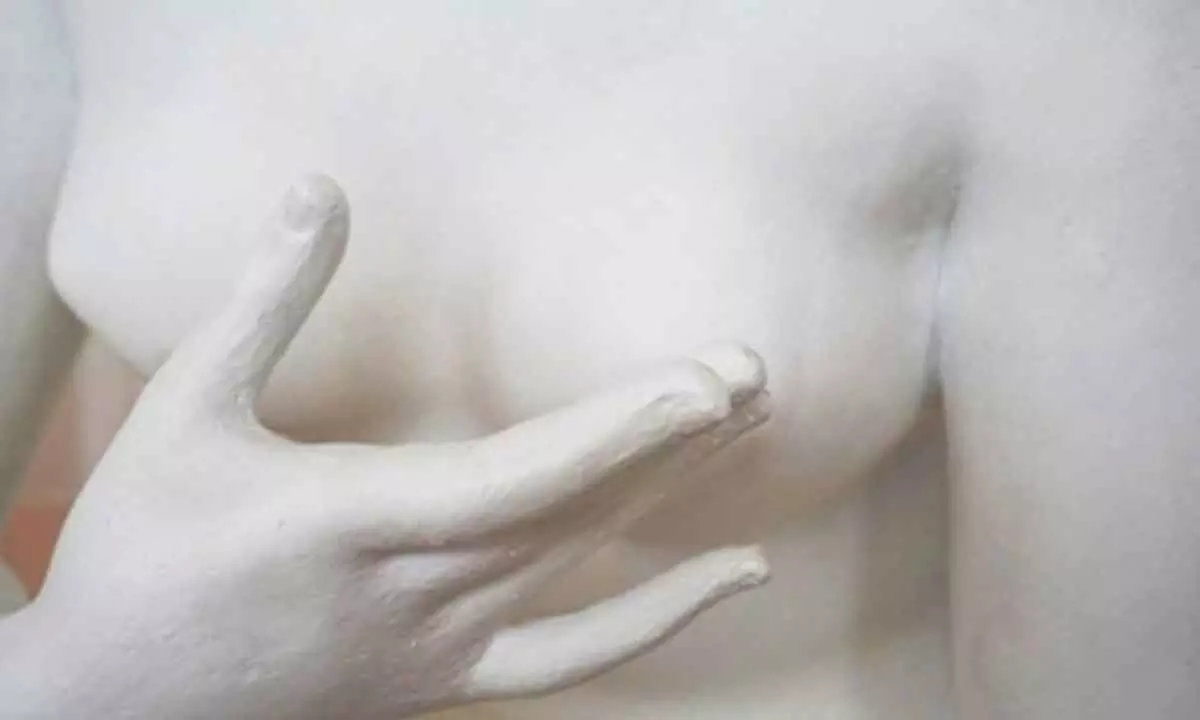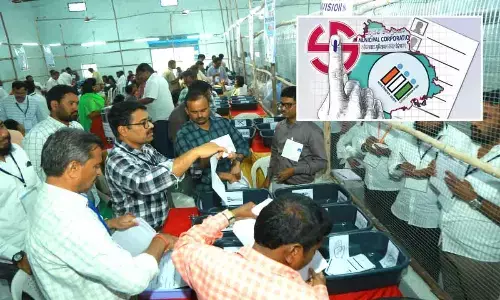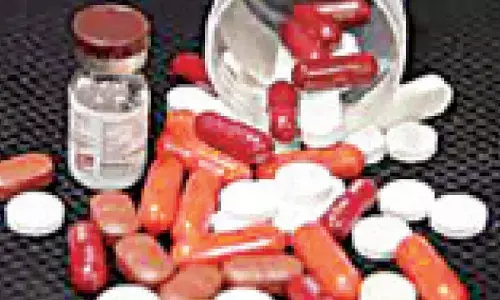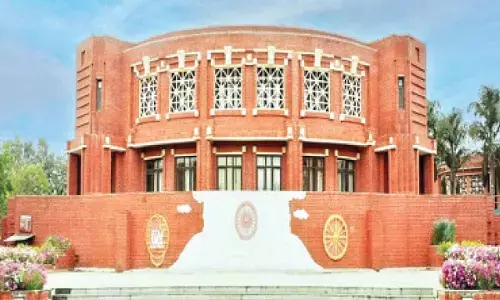Breast cancer predominantly a lifestyle disease, is preventable: Experts
Share :

Breast cancer is predominantly a lifestyle disease caused by western lifestyle, and is preventable, said experts here on Sunday.
New Delhi : Breast cancer is predominantly a lifestyle disease caused by western lifestyle, and is preventable, said experts here on Sunday.
Breast cancer is the most common type of cancer affecting women worldwide. According to the World Health Organization, in 2020 more than 20 lakh females were diagnosed with breast cancer, and more than 6 lakh lives were lost. In India, breast cancer is the leading cause of cancer in women.
In 2020, more than two lakh women in India were estimated to have been diagnosed with breast cancer, and more than 76,000 deaths reported as per the estimates, according to the National Cancer Registry Programme report by the National Centre for Disease Informatics and Research. As per the report, the number is expected to rise to more than 2.3 lakh cases in 2025.
“Breast cancer is the commonest cause of cancer related deaths in women. Although up to 10 per cent of cases could be attributed to hereditary factors, breast cancer continues to be predominantly a lifestyle related disease. Increasing life expectancy, later age at the time of first child birth, nulliparity, obesity and alcohol consumption are some of the important risk factors,” Dr Jyoti Wadhwa, Vice-Chairperson and HOD Medical Oncology and Hematology, Paras Health, Gurugram, told IANS.
“One important cause of the rise of breast cancer is that we have adopted a westernised lifestyle which includes obesity, stress, habits like smoking habits, alcohol or fast-food habits. Apart from that the food that we eat, ultra processed food which is unhealthy fats and high sugar foods also contribute to it,” added Dr. Peush Bajpai, HOD and Consultant - Medical Hemato Oncologist, HCMCT Manipal Hospitals, Dwarka
A recent study by AIIMS suggested that, in Delhi, 30 per cent of breast cancers were found in women below the age of 40 years. According to the figures, an estimated 35 women had breast cancer while 17 men had lung cancer among 1 lakh people in 2015. This figure increased exponentially in 2022 with 34.9 per cent breast cancer from 2,657 to 3,611.
“When we look at the breast cancer statistics in the Western world, we diagnose breast cancer at nearly a median age of the sixth decade, whereas in India we are diagnosed in the fourth decade, to be precise it’s nearly 49 years,” Dr Bapai said.
In addition, “in these younger women, breast cancer tends to be more aggressive, of higher grade and often of triple negative type, thereby resulting in worse outcome. Almost 2/3rd of these patients present to us in advanced stages,” Dr Wadhwa said.
Research has shown that certain changes in lifestyle can reduce the risk of breast cancer in women. “Limiting alcohol, maintaining a healthy weight, staying physically active, avoiding hormonal therapies or contraceptives, breast-feeding, avoiding smoking, and eating a balanced diet can certainly lower the risk of breast cancer,” Dr Agarwal said.
The experts cited the lack of adequate nutritional intake as well as low awareness of breast cancer symptoms among women, particularly in the rural areas.
“Breast cancer can have a variety of symptoms depending on the stage of cancer. Some symptoms include, breast lump, change in size and appearance of breasts, change in shape, redness, change in appearance of nipple, fluid or blood discharge from nipple, and breast pain,” Dr Rajeev Agarwal, Senior Director - Cancer Institute, Medanta Gurugram, told IANS.
However, “some women are presented with symptoms like painless lump and in India people are usually diagnosed late. Women should come forward with any painless lump in the breast, especially as the age advances beyond the age of 40 years because the early breast cancer majorly would present like this until and unless pain only starts when it is actually in an advanced situation,” Dr Bajpai said.
The doctors called for regular screening above the age of 18 years along with self-breast examination as an important tool to detect the disease.







